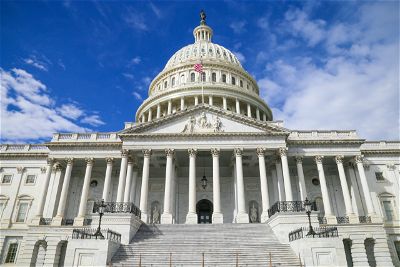
The Workforce Innovation and Opportunity Act of 2022 Increases Resources, Advances Equity, and Modernizes Our Systems
April 6, 2022
At a Glance
Movement of this legislation would expand and improve services to America’s jobseekers, workers, and employers.
Late yesterday, the House Committee on Education and Labor passed a bill reauthorizing the Workforce Innovation and Opportunity Act (WIOA), the authorizing statute for our nation’s workforce development system. Jobs for the Future (JFF) supports many of the changes that H.R. 7309 would make, in particular a focus on equity, system modernization, job quality, and increased authorized funding for workforce development
While we are disappointed that the bill passed from committee with only Democratic support, we look forward to working with both sides of the aisle on continued discussion, iterations, and movement of this legislation, which would expand and improve services to America’s jobseekers, workers, and employers.
For far too long the United States has underfunded workforce development efforts in this country, to the detriment of America’s workers.
JFF celebrates the bill’s intentional focus on equity. The bill prioritizes services under WIOA’s Adult program for individuals facing barriers to employment, including for reasons related to race or ethnicity, and promotes changes in the composition of workforce boards to be reflective of the communities they serve. It also includes timely and important language changes related to people with criminal records that better reflect how that community defines itself. The bill calls for enhanced services for these populations and stresses the need for workforce leaders and staff to participate in high-quality professional development for providing more equitable access and delivery of services. It also attempts to get better data on the performance of these populations in WIOA programs, to better understand and address persisting gaps in outcomes. H.R. 7309 also encourages the provision of evidence-based strategies such as career pathways and more robust supportive services that are aligned to individuals’ needs.
Critically, the bill also supports the modernization of the WIOA system, providing resources, setting expectations, and building capacity for the use of cutting-edge digital technologies and tools to expand and improve career navigation and skills development services. Local areas are encouraged to offer an augmented array of virtual and in-person service delivery strategies through Career One Stops and affiliated sites including public libraries, community-based organizations, and other partners with experience in meeting the needs of individuals in the community.
H.R. 7309 focuses on job quality, encourages skills-based hiring, and establishes new grants for sector partnerships. The bill also codifies the Strengthening Community Colleges Training Grant program (SCCTG) and reentry programs for people after incarceration.
As policymakers continue to discuss and negotiate workforce legislation, we hope to see an even greater emphasis on skills development and on modernization of aligned programs in the broader workforce ecosystem.
Finally, the bill’s significant increases in authorized funding for WIOA are welcome, and of utmost importance. For far too long the United States has underfunded workforce development efforts in this country, to the detriment of America’s workers. While infrastructure and competitiveness measures are expected to create hundreds of thousands of new, in-demand jobs, those measures lacked investments in building the skills of workers to fill them. This bill would authorize funding of $74 billion over six years for workforce development programs, a level of funding that would provide significant increases in critical skills development, career navigation, and support services for America’s jobseekers and workers.
While JFF is pleased with this progress, we know more must be done to truly transform and modernize the nation’s workforce system. Much of this depends on transformation of the broader workforce development ecosystem and actual funding of these programs. As policymakers continue to discuss and negotiate workforce legislation, we hope to see an even greater emphasis on skills development and on modernization of aligned programs in the broader workforce ecosystem. We hope to see stronger incentives for moving regionally in the delivery of services, and in making workforce systems more agile and responsive to the changing needs of regional economies, employers, and workers.
Related Content

Policy at JFF
JFF’s policy team offers fresh ideas on education, poverty alleviation, and workforce issues that prepare students and workers for the jobs of the future and boost our nation's economy. JFF’s policy team offers fresh ideas…

White House Budget Advances Biden’s Domestic Vision but Falls Short in Worker Training and Supports
JFF welcomes the provisions in the Biden administration’s FY23 budget request that increase funding for high-quality education and skills development initiatives, but we’d like to see more support for programs that help America’s workers and…
